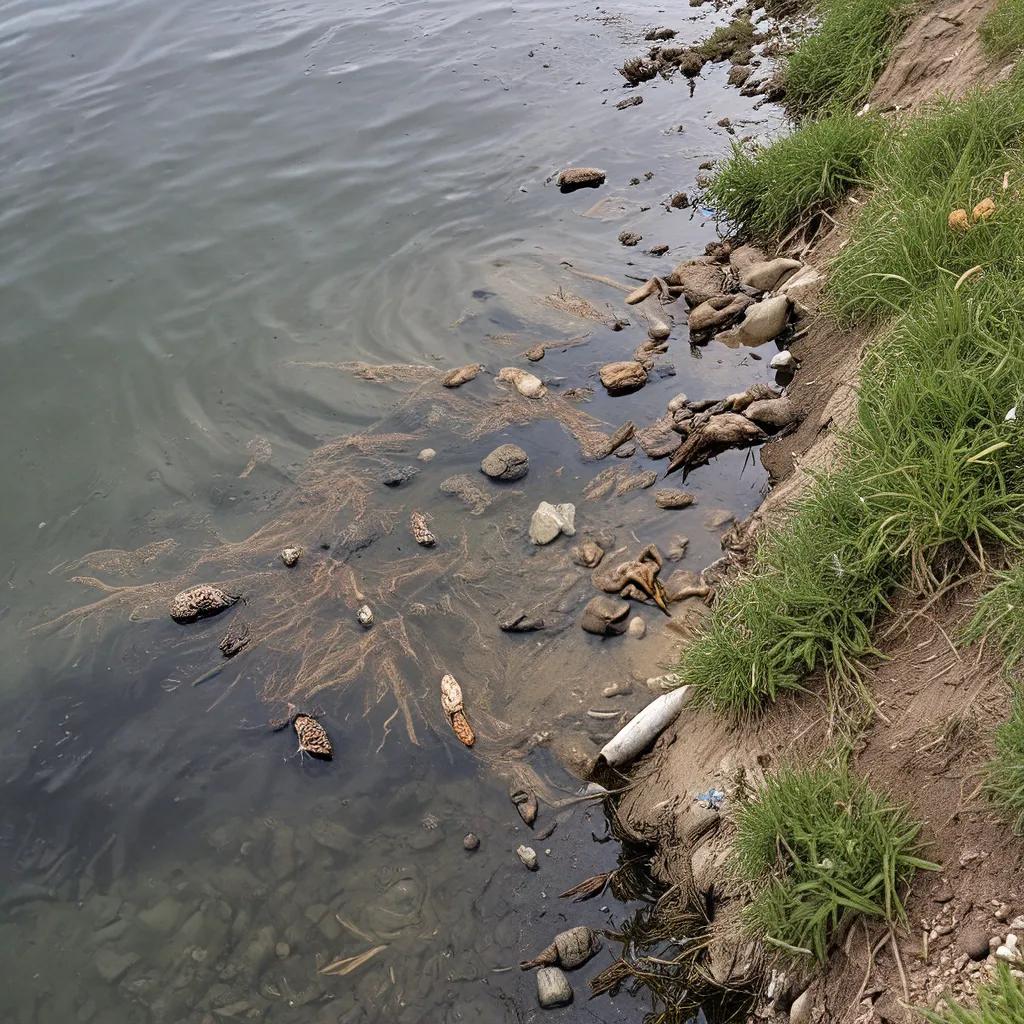
As someone who has always been fascinated by the wonders of the ocean, I’ve often wondered about the unseen challenges our marine environments face. One issue that has increasingly caught my attention is the impact of wastewater discharge on these delicate ecosystems. It’s a topic that, while not always in the spotlight, holds profound implications for the health and future of our oceans.
Unveiling the Hidden Threats of Wastewater Discharge
Imagine the vast, shimmering expanse of the ocean, teeming with life and beauty. Now, picture a dark plume of polluted water being released into this serene scene. This is the reality that many coastal communities and marine habitats face, as wastewater discharge from various sources, including industrial facilities, sewage treatment plants, and agricultural runoff, finds its way into our precious oceans.
The consequences of this pollution can be dire. Excessive nutrients in the wastewater can lead to the rapid growth of algae, creating algal blooms that deprive the water of oxygen and suffocate marine life. Heavy metals and toxic chemicals can accumulate in the food chain, poisoning fish and other organisms that we rely on for sustenance. And the introduction of pathogens and disease-causing agents can pose a direct threat to human health and the delicate balance of marine ecosystems.
Unraveling the Complex Web of Marine Ecosystems
To truly understand the impact of wastewater discharge, we need to delve into the intricate web of marine ecosystems. These vibrant environments are not just a collection of individual species; they are intricate, interconnected systems where each component plays a vital role.
When we disrupt this fragile balance, the ripple effects can be devastating. Coral reefs, for instance, are particularly vulnerable to the influx of pollutants, with studies suggesting that wastewater discharge is a significant contributor to their global decline. These diverse underwater cities not only provide a home for countless species but also serve as natural barriers, protecting coastlines from the ravages of storms and erosion.
Similarly, seagrass beds and mangrove forests are vital nursery grounds for many marine species, offering shelter and sustenance to young fish, crustaceans, and mollusks. When these areas become polluted, the cascading effects can ripple through the entire ecosystem, potentially leading to a decline in commercial and recreational fisheries.
Combating the Challenge: Strategies for Wastewater Mitigation
The good news is that we are not powerless in the face of this challenge. There are numerous strategies and technologies available to help mitigate the impact of wastewater discharge on our marine ecosystems.
One promising approach is the implementation of advanced wastewater treatment systems. These systems can remove a wide range of pollutants, including nutrients, heavy metals, and organic compounds, before the water is discharged into the ocean. By investing in these technologies, we can significantly reduce the burden on our marine environments.
Additionally, there is a growing emphasis on sustainable land-use practices and integrated watershed management. This involves adopting agricultural methods that minimize the runoff of fertilizers and pesticides, as well as implementing green infrastructure solutions like constructed wetlands and bioswales to capture and filter stormwater before it reaches the ocean.
But the challenge doesn’t end there. Community engagement and public education are also crucial in the fight to protect our marine ecosystems. By raising awareness and empowering individuals to make informed choices, we can foster a collective sense of responsibility and inspire action at the grassroots level.
And of course, as a leading provider of wastewater treatment services, Alpha Wastewater stands ready to assist communities in implementing these vital solutions. Our team of experts can help you navigate the complex landscape of wastewater management, ensuring that your discharge practices are not only compliant but also environmentally responsible.
Embracing a Future of Resilient Marine Ecosystems
As I reflect on the challenges facing our oceans, I can’t help but feel a sense of both concern and hope. The impact of wastewater discharge is undeniably profound, but the solutions are within our reach. By addressing this issue head-on and working together to implement sustainable practices, we can not only protect our marine ecosystems but also ensure their resilience for generations to come.
It’s a daunting task, to be sure, but one that I believe is worth the effort. After all, the health of our oceans is inextricably linked to the well-being of our planet and our communities. When we take action to safeguard these vital resources, we are investing in a future where the wonders of the sea can continue to captivate and inspire us.
So, let’s roll up our sleeves and get to work. With a deep understanding of the challenges, a commitment to innovative solutions, and a shared sense of responsibility, I believe we can turn the tide and build a more sustainable future for our marine ecosystems. Who’s with me?